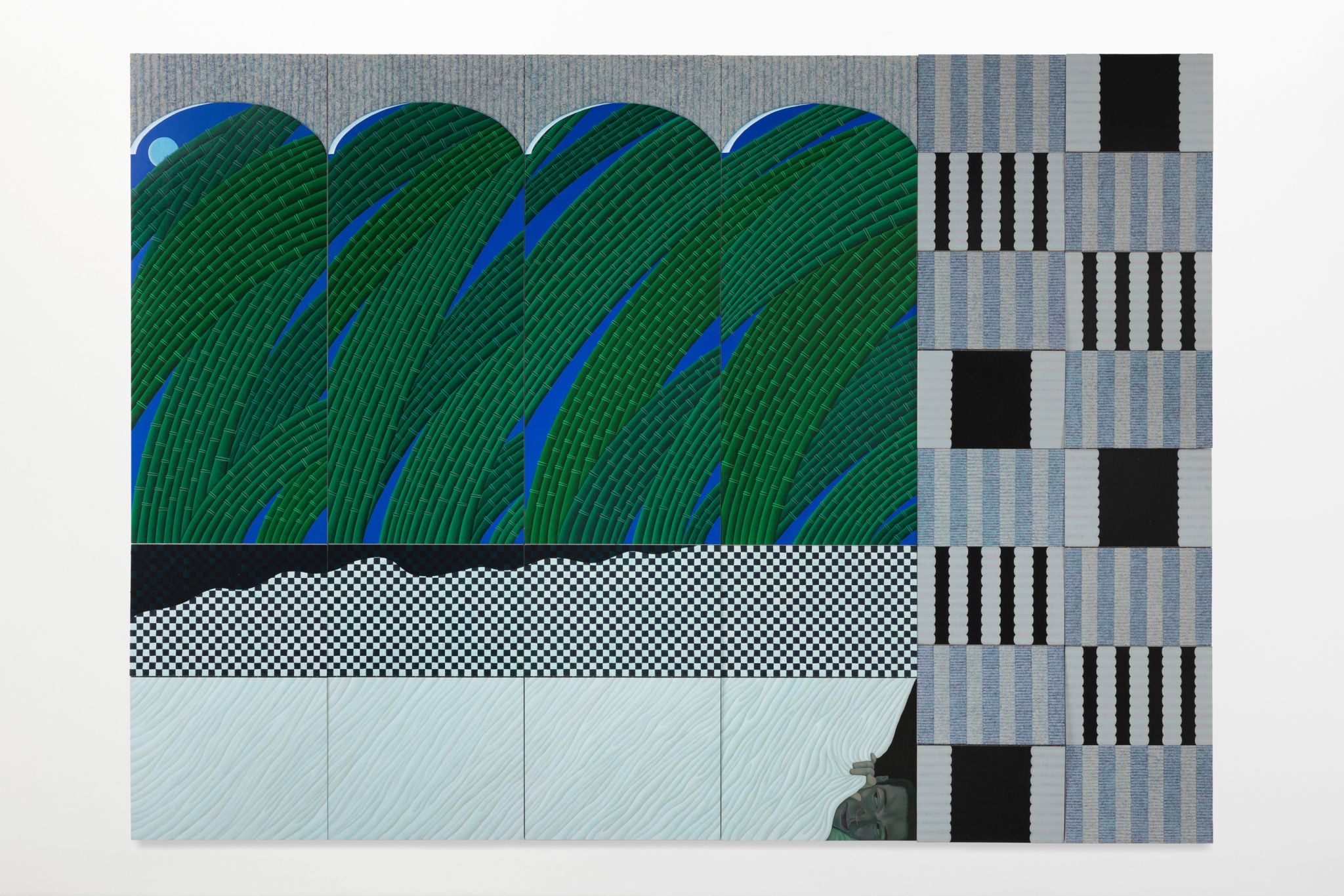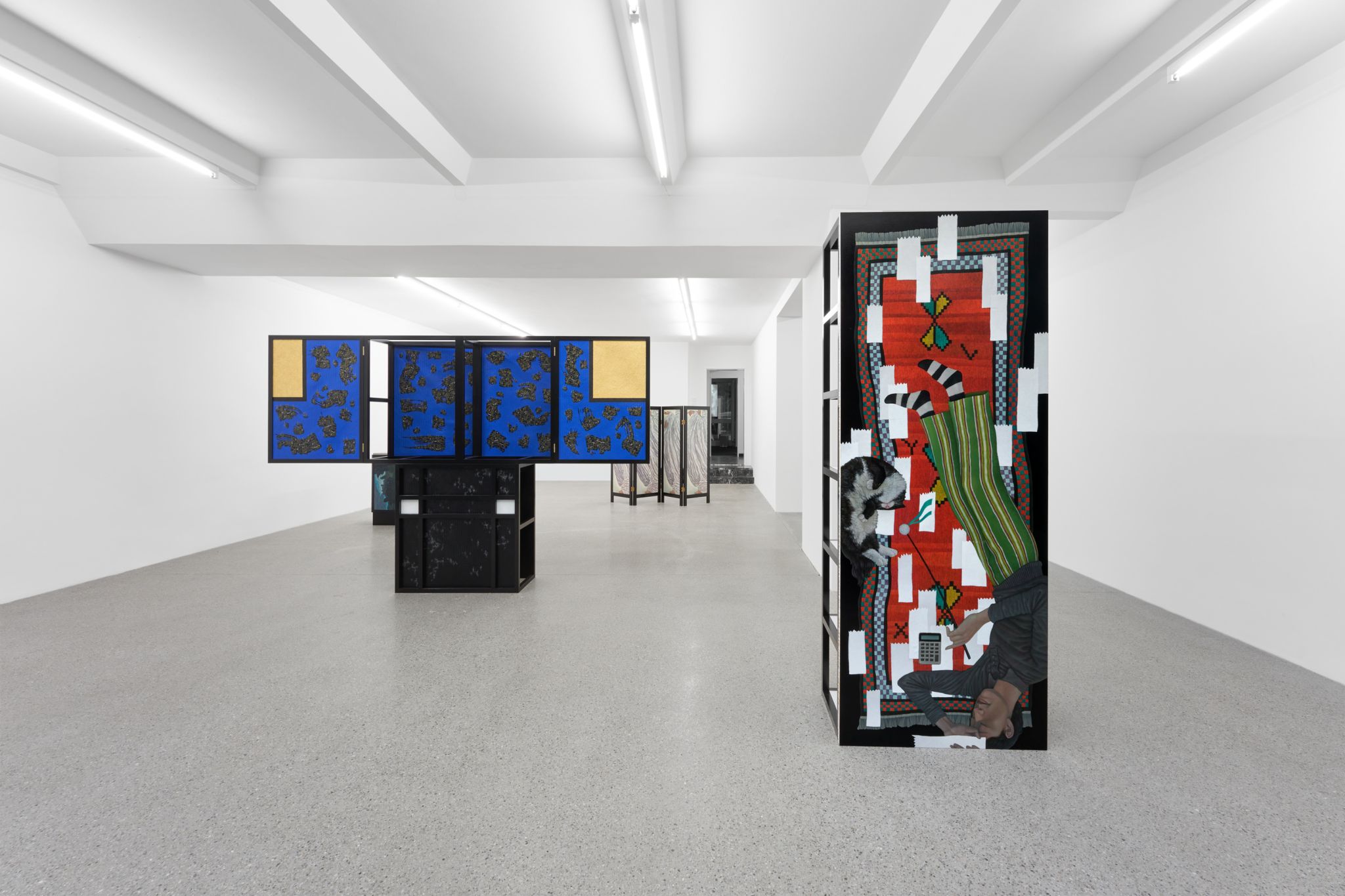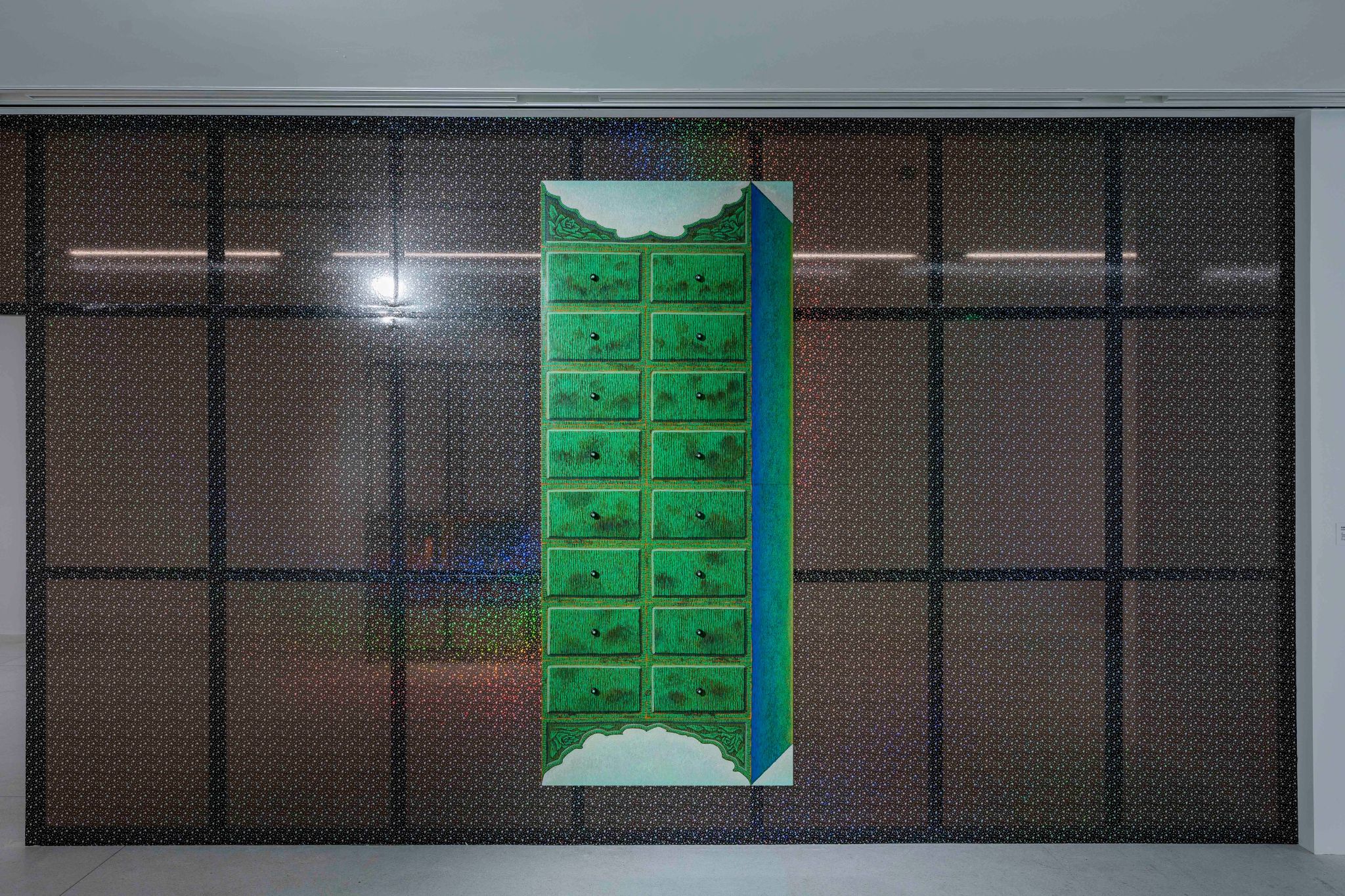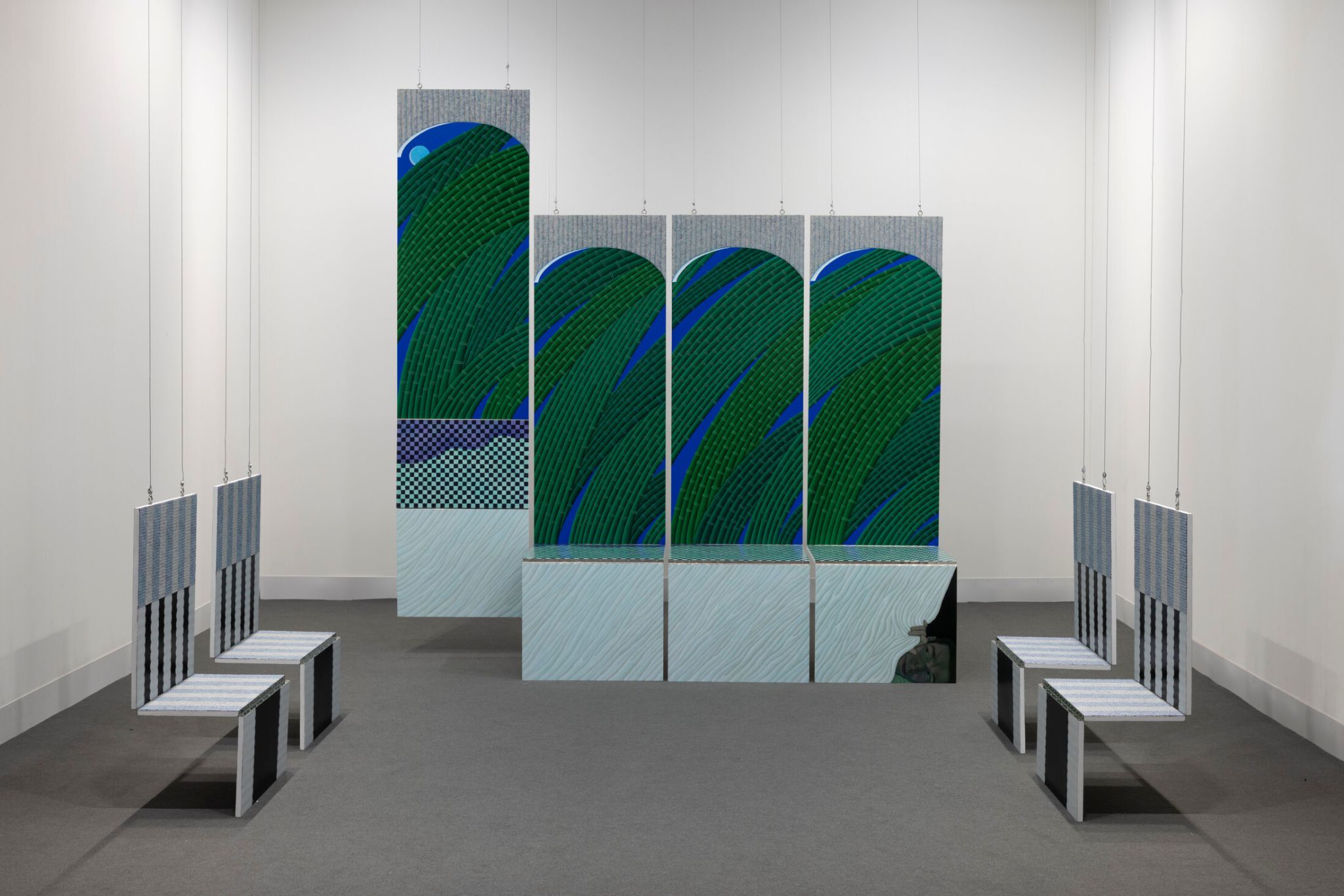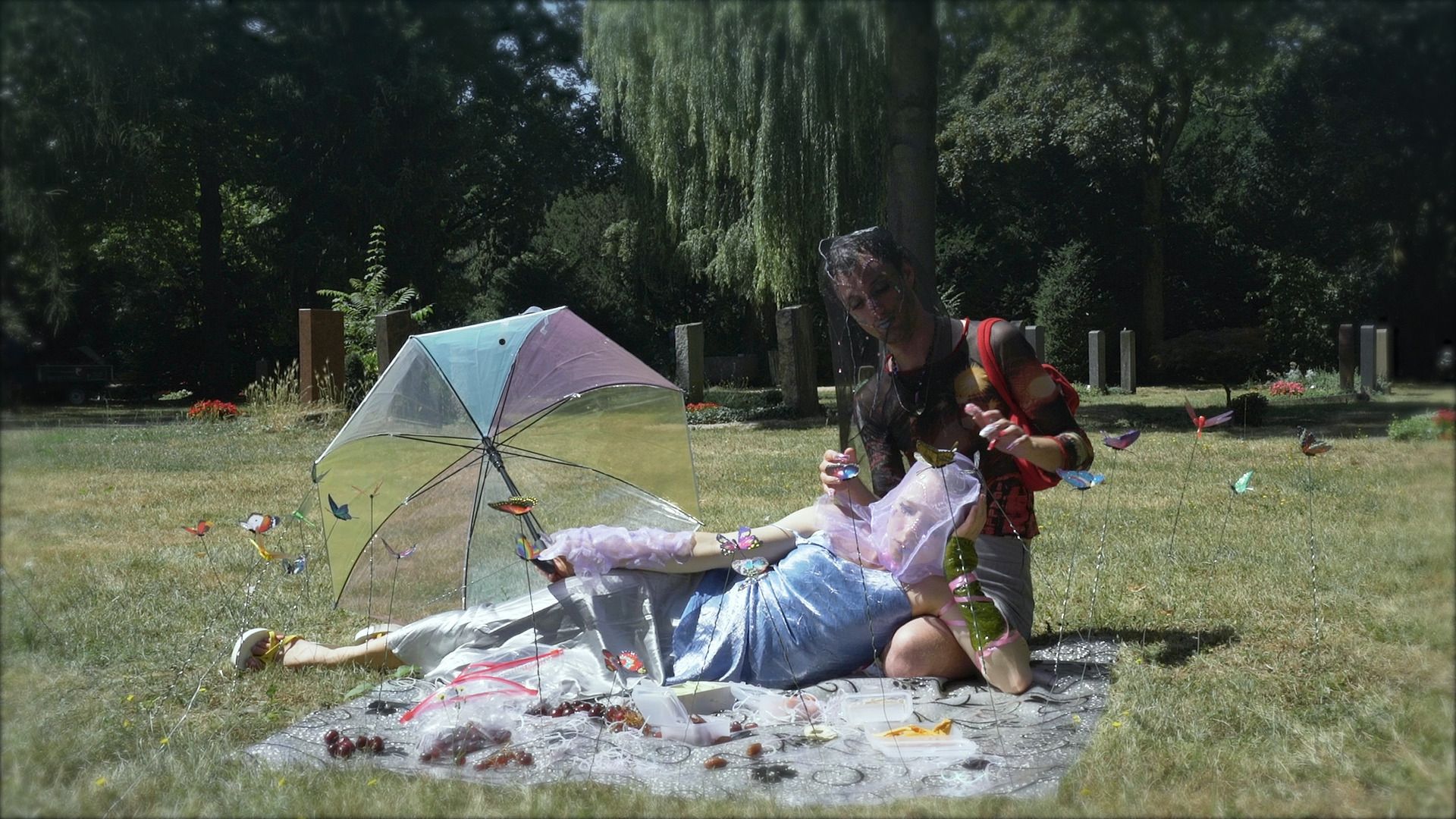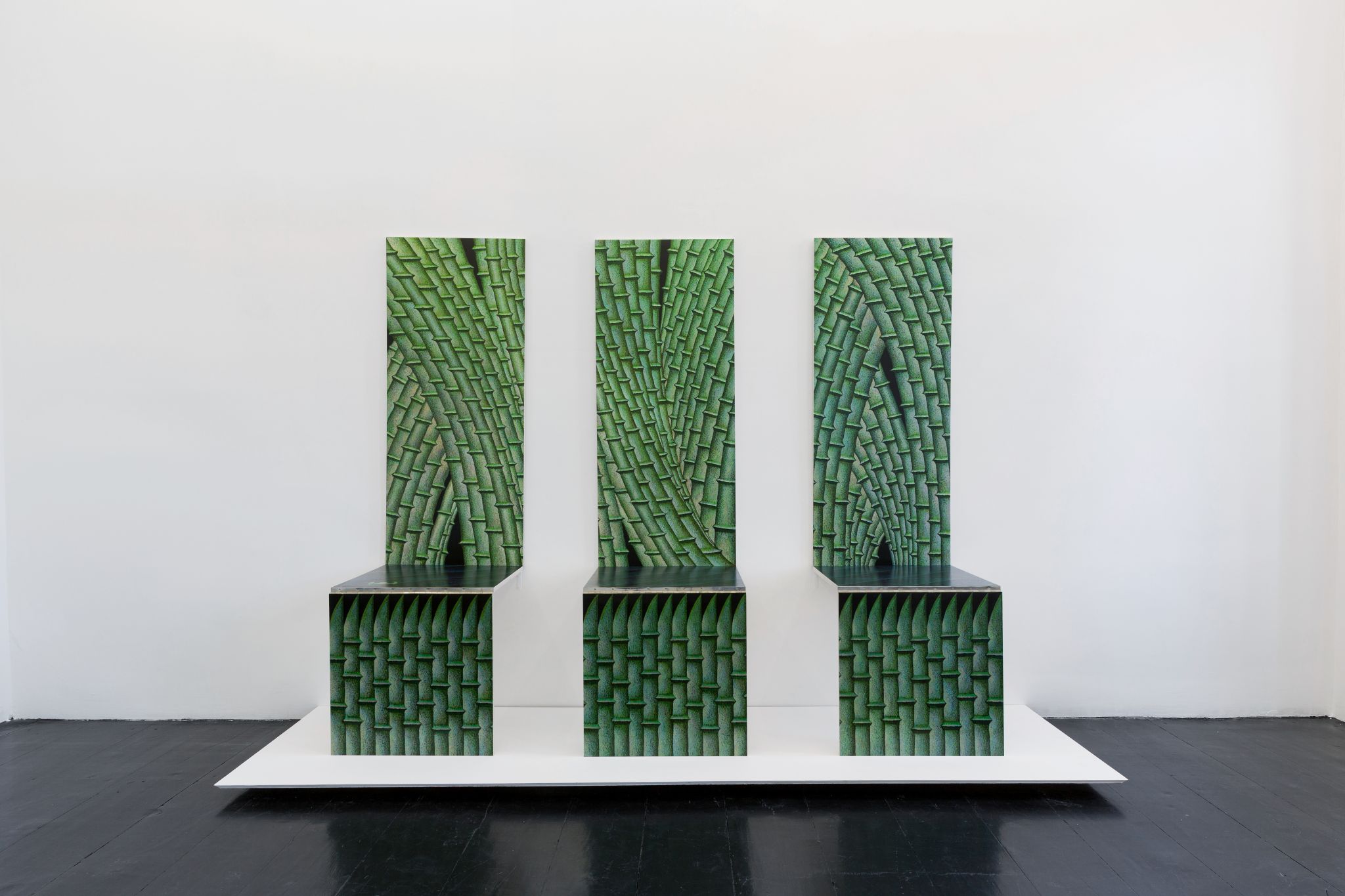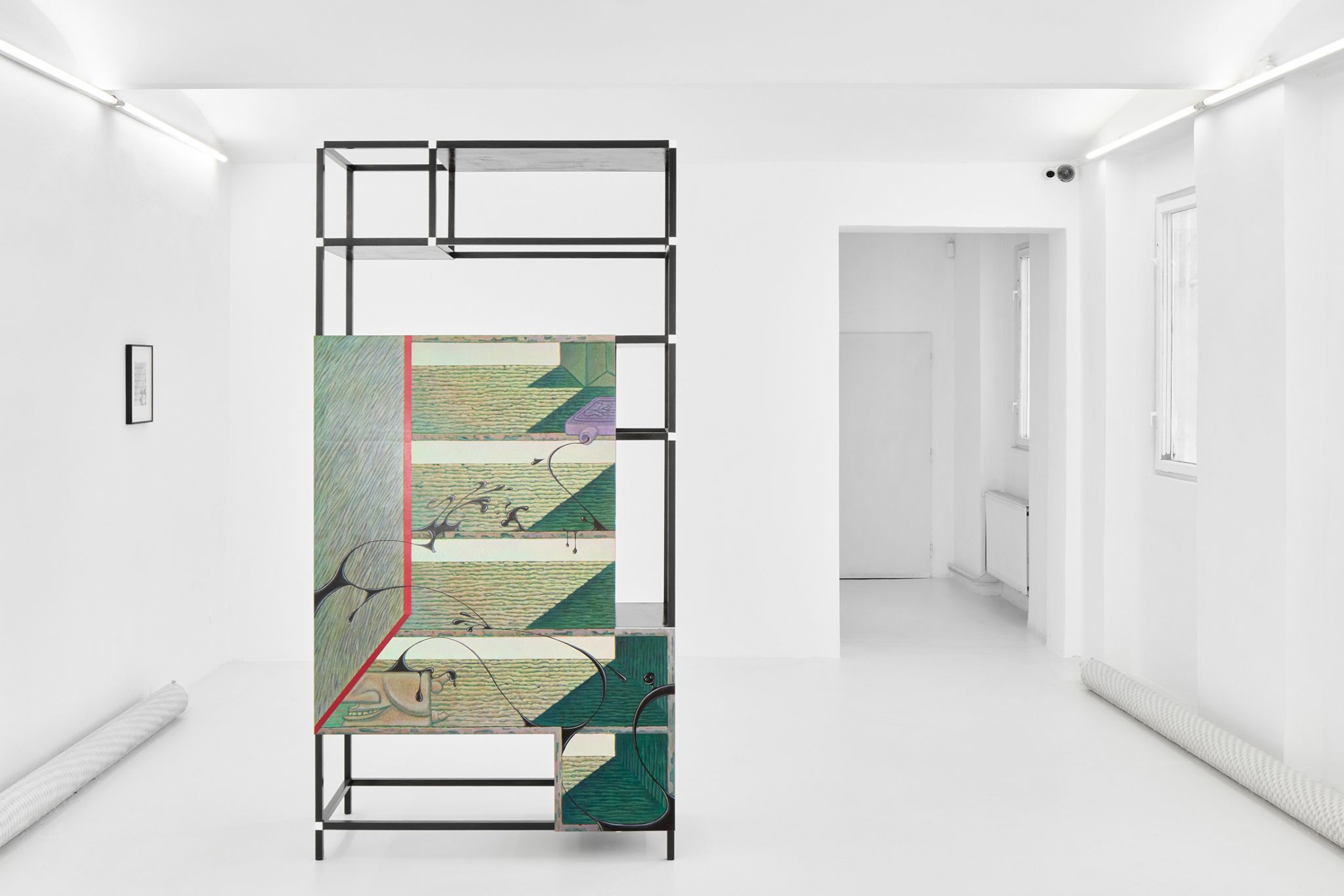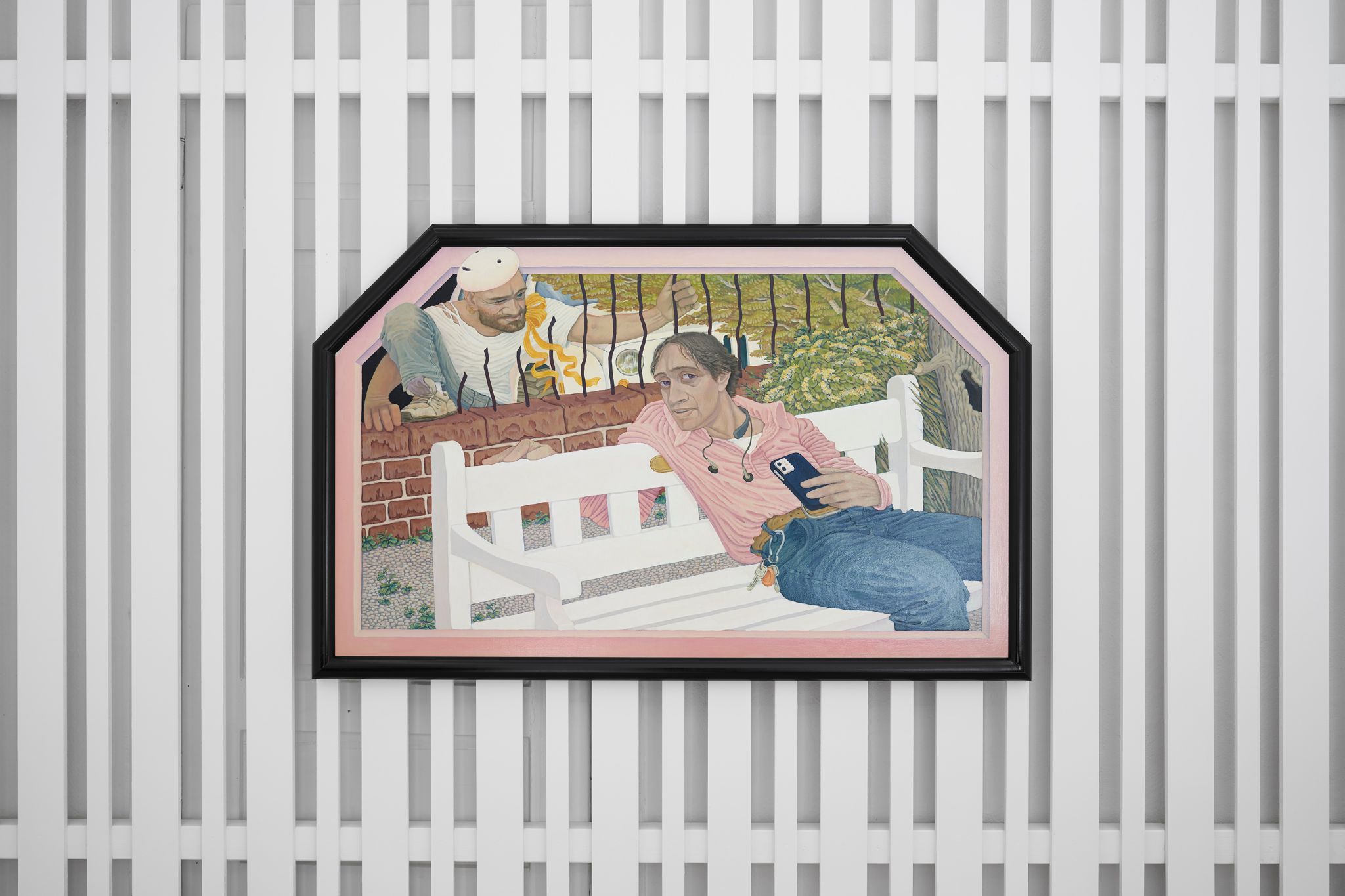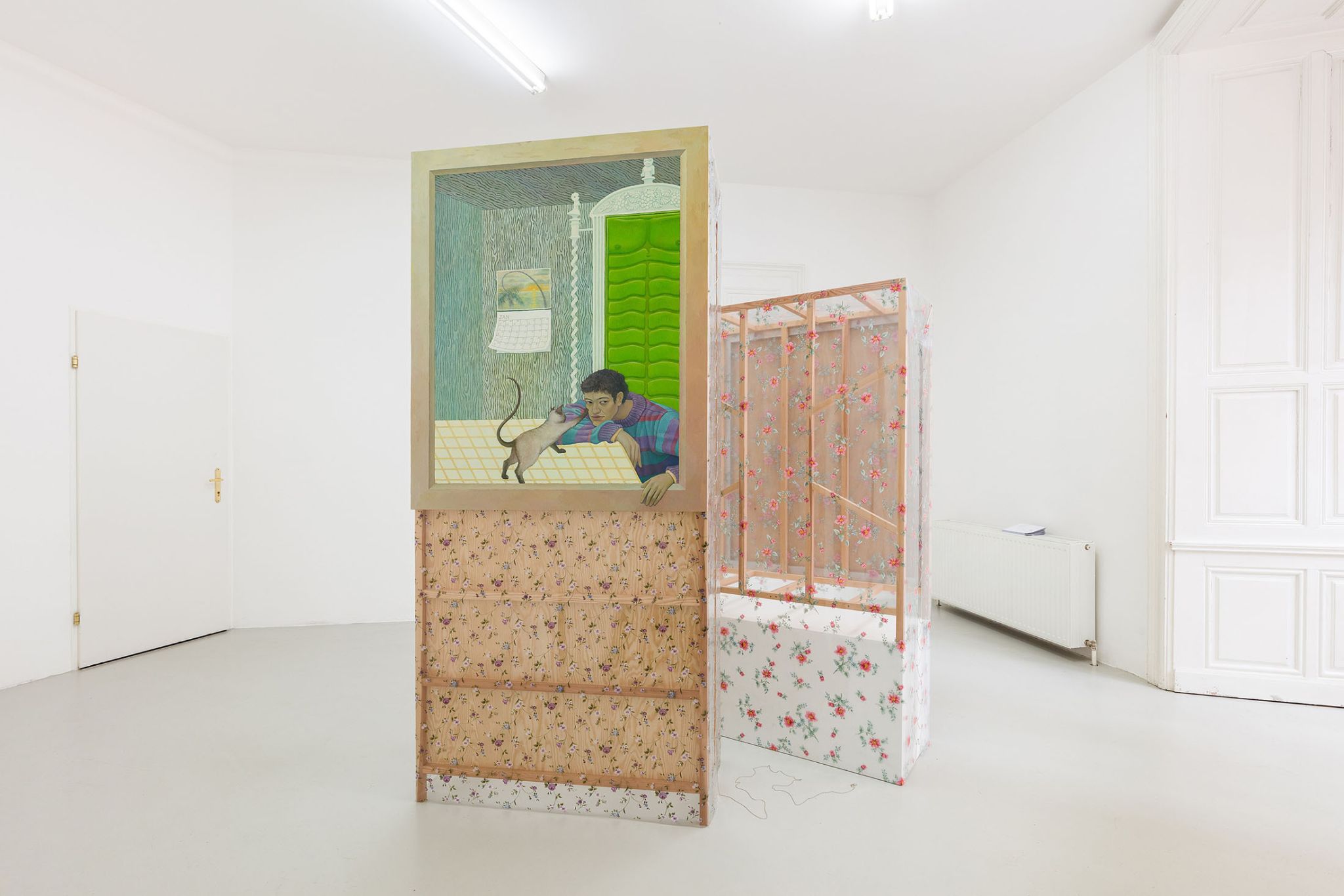Wednesday – Friday 12 – 6 pm
Saturday 12 – 4 pm and by appointment
In his practice, Yong Xiang Li draws on a diversity of media. His main interest, however, lies in the border-crossing intersections between painting, sculpture, music and video. Influenced by a reciprocal understanding of culture and diaspora experience, the artist challenges ideas of sovereignty and existing power-structures by engaging in contaminations that aim at media, formal and cultural specificities. Yong Xiang Li works with three-dimensional painting. Citing the aesthetic history of exoticism in Western art and design, and the mistranslation of aesthetics of the “Far East,” Li offers a pluralistic exploration of the politics of surface. In this, the surface is always placed “in relation to” or “in service of” to queer the power relation between the decorative, the object and labour. Li’s figurative painterly practice brings to life protagonists that linger in alternate states of object- and subject-hood. Here, meticulously constructed painted surfaces are commonly set in dialogue with their surroundings and their often sculptural support. The resulting spatial-temporal peculiarities point to the hybrid flows of cultural histories that constitute the works’ existence and defy easy categorizations. Moreover, the artist engages heterogeneous painterly styles to attempt a “queer inhabitation” of acknowledged art history: an exploration of queer subjectivity and agency mediated through a series of assimilations, dis-identifications and transmutations.
Yong Xiang Li (b. 1991 in Changsha, China) lives and works in Berlin. He completed his Meisterschüler in visual arts with Judith Hopf at the Städelschule in 2020. Recent solo and group exhibitions include Deborah Schamoni (2023); Kunsthalle Mannheim (2023), UCCA, Shanghai (2023); Göteborg International Biennial for Contemporary Art (2023); Antenna Space, Shanghai (2023); LC Queisser, Tbilisi (2022); New Century Art Foundation, Beijing (2022); Sadie Coles, London (2021); Portikus, Frankfurt am Main (2020).
-
In his practice, Yong Xiang Li draws on a diversity of media. His main interest, however, lies in the border-crossing intersections between painting, sculpture, music and video. Influenced by a reciprocal understanding of culture and diaspora experience, the artist challenges ideas of sovereignty and existing power-structures by engaging in contaminations that aim at media, formal and cultural specificities. Yong Xiang Li works with three-dimensional painting. Citing the aesthetic history of exoticism in Western art and design, and the mistranslation of aesthetics of the “Far East,” Li offers a pluralistic exploration of the politics of surface. In this, the surface is always placed “in relation to” or “in service of” to queer the power relation between the decorative, the object and labour. Li’s figurative painterly practice brings to life protagonists that linger in alternate states of object- and subject-hood. Here, meticulously constructed painted surfaces are commonly set in dialogue with their surroundings and their often sculptural support. The resulting spatial-temporal peculiarities point to the hybrid flows of cultural histories that constitute the works’ existence and defy easy categorizations. Moreover, the artist engages heterogeneous painterly styles to attempt a “queer inhabitation” of acknowledged art history: an exploration of queer subjectivity and agency mediated through a series of assimilations, dis-identifications and transmutations.
read more
/
-
CV Yong Xiang Li
81 kb -
I’m Not in Love (How to Feed on Humans) by Interview with Yong Xiang Li by Alvin Li, e-flux Film, 08/2023
2962 kb -
Emerging painters from the Chinese world by Alvin Li, Art Basel, 03/2023
1111 kb -
Into the Bamboo Grove. Yong Xiang Li by Ben Livne Weitzman, Passe-Avant, 03/2022
2633 kb -
Rhinoceroses, Lilies, Vampires: Yong Xiang Li by Alvin Li, Mousse Magazine 74, 12/2021
763 kb
